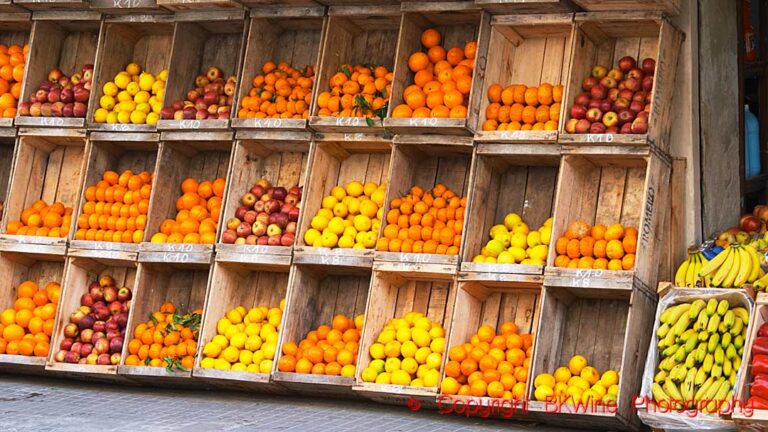You can read more on wine ratings in the article in the Wall Street Journal that you’ll find in the ‘link tips’ in another post. But the question certainly has a point. Yes, it can be interesting and “convenient” with wine ratings sometimes. But in many ways it is unfair and unjust to reduce a wine to a simple score. Because you can’t really rate a wine with a number.
Read for example in the WSJ article about the wine that once had a top score in the Wine Spectator and a bit later only had a very moderate score. The same wine. What had happened? Nothing really. And you should certainly not blame the WS and say that they are incompetent wine judges. It’s just that you simply can “rate” (or taste) a wine differently at different occasions. On top of that, different persons have different tastes and appreciate different wines. Some like Burgundy and others like Amarone. Some like elegance others prefer structure. And Parker does not have the same taste as Jancis (Robinson) who does not have the same taste as (Hugh) Johnson who does not have the same taste as BKWine…
Another illustration: in a wine competition in south America the organisers decided one year that all members of the jury should come from England. No doubt a clever move to get some added international attention. But when the medal winning wines were announced they scratched their heads in South America. How could those wines win? Well, no doubt because the taste is different in South America and in England. (And in France, the US, Germany, Hong Kong, etc.)
So perhaps the best thing would be to scrap points ratings?
But nevertheless, at BKWine we do use a rating system sometimes, albeit not often on these pages. But I encourage you to read the descriptions and comments rather than the point rating for a wine, and to not only buy top rated wines but also give the lowers ratings a chance – the “rater” may have had a bad day or may have a different taste than you.
And best of all – don’t bother with what some “experts” say, taste the wines yourself and judge for yourself and you will discover many wonderful things in the wine world.











5 Responses
Yes, I agree – the points are mainly pointless, in my opinion. I know one wine writer who is using the “Parker scale” and is confident that he can give the same number of points to a wine on several very different occasions, but at my own wine lectures I have always said that the individual taste of wine depends on what you have eaten yesterday, what you have eaten today, and what you are going to eat tomorrow. In other words, taste is rather dependent on one’s mood.
Just a point of clarification: The wine referred to in the San Francisco Chronicle article (not WSJ, as cited in the blog) on wine rating, which received different scores from Wine Spectator in two tastings, was not exactly the “same wine.” It was a Chateau St. Jean Cabernet Sauvignon tasted on two occasions nearly 10 years apart. It’s no wonder it received different scores — as wine lovers know, wines change with age, and only the very best improve over such a long period of time. From our point of view, the two different scores show the integrity of our evaluation system, reflecting real differences not necessarily obvious, given the wine had the same label.
I don’t argue that wine ratings in themselves should be the only information wine drinkers use to choose the wines they decide to buy and enjoy. But using an expert’s experience as part of a personal evaluation seems reasonable. We do it for many goods in many fields. Why not wine?
Thomas Matthews
Executive editor
Wine Spectator
Admittedly, the note was argumentative and intentionally provocative. We have no reason to doubt that the WS taster are competent and always rate the wines fairly and to the best of their ability. We were not in any way implying that the WS was lacking in integrity.
The argument was directed at two things: 1) it is more important to “taste” and describe than to score, 2) Tastes vary and different person have different tastes, or even the same persons may taste differently at different occasions.
That does not mean that ratings are meaningless but we would wish that people would pay less attention to the number and more to the writing, the thinking and the tasting.
And also, the WS – and all other wine writing – would become very short if it was just about numbers.
And of course the opinion of an “expert” is valuable. Why else would we (WS, BKWine, RP, JR, WE, Decanter,…) be here?
And of course the opinion of an “expert” is valuable. Why else would we (WS, BKWine, RP, JR, WE, Decanter,…) be here?
Nice lot you put yourselves in. A little bit left to the rest of them, haven’t you?
I think the English have an expression that is tongue in cheek, don’t they?
At least it provoked a comment from you, whoever you are. Which is nice.
It would have been interesting to know what you thought about the actual question posed.